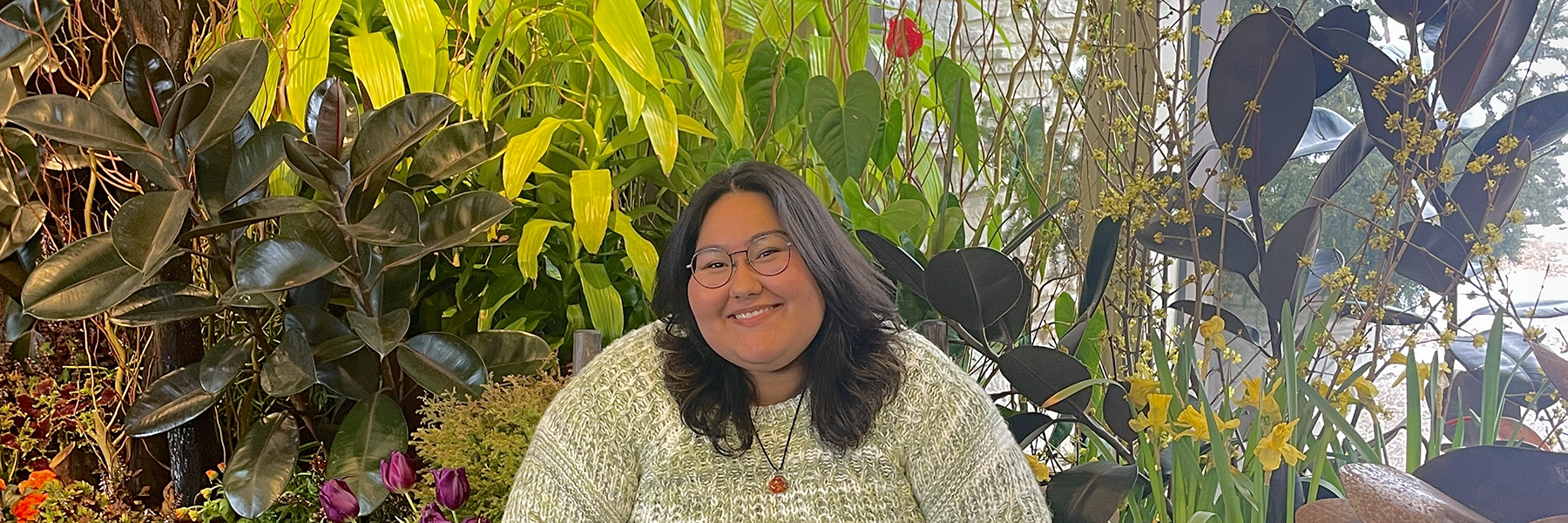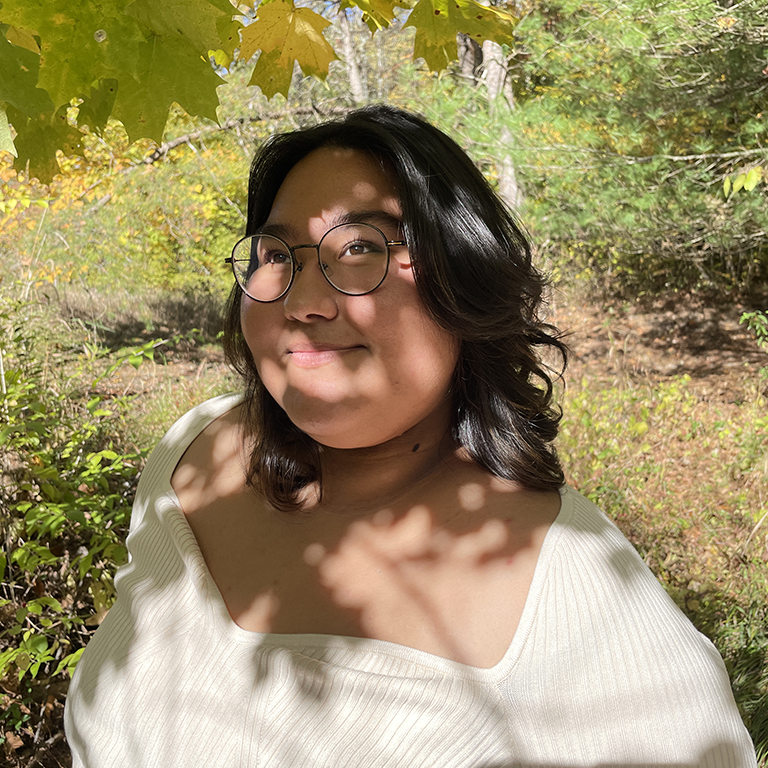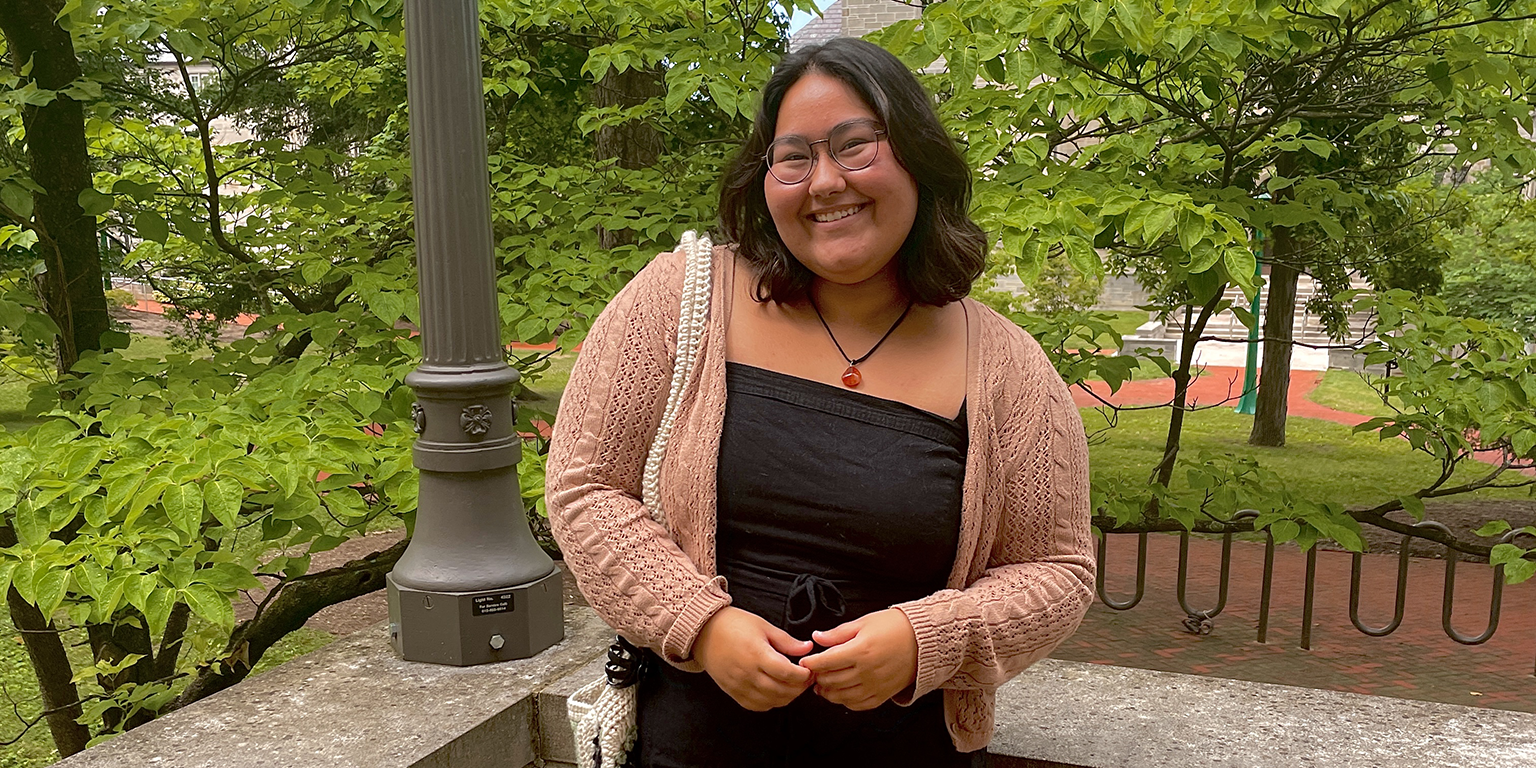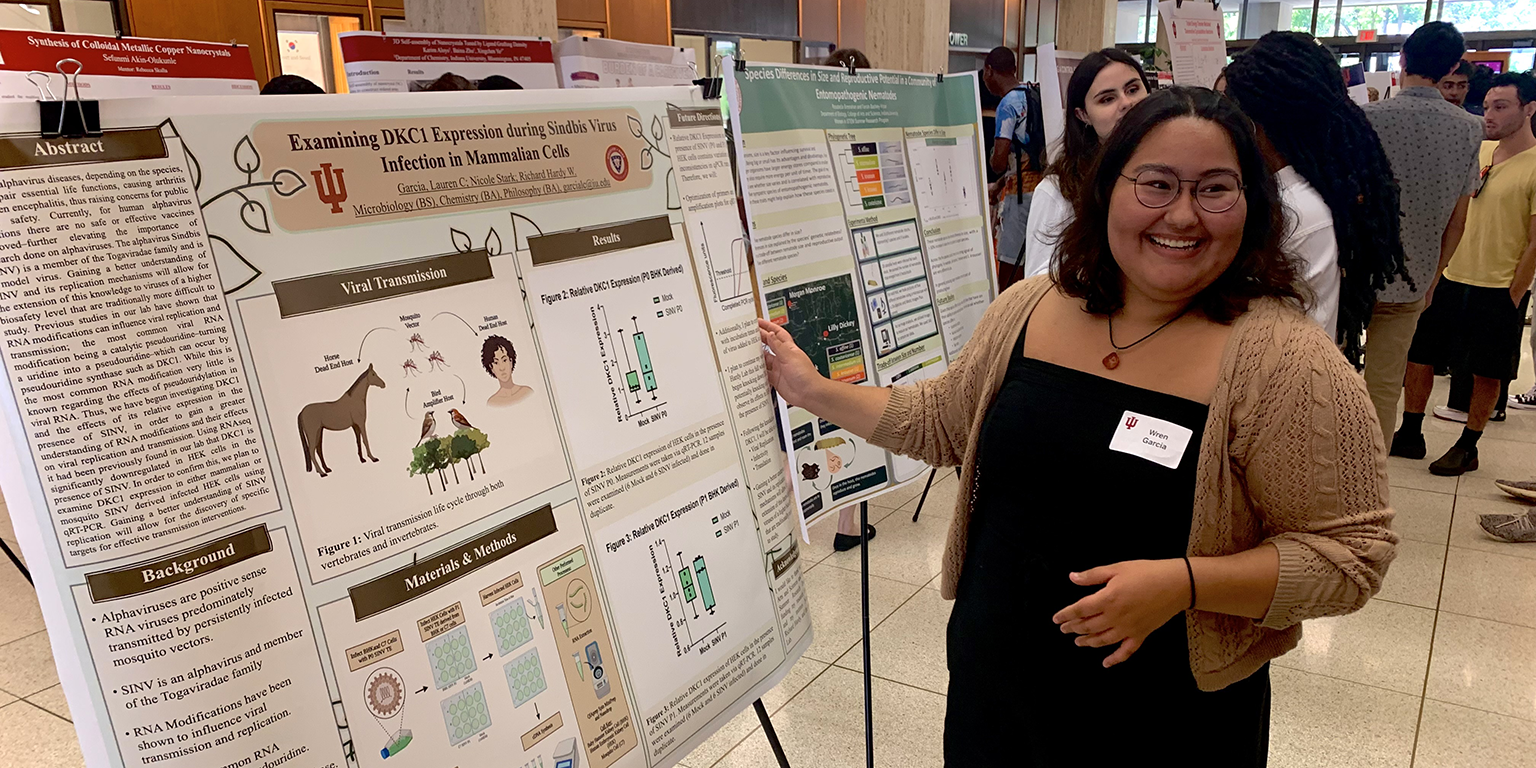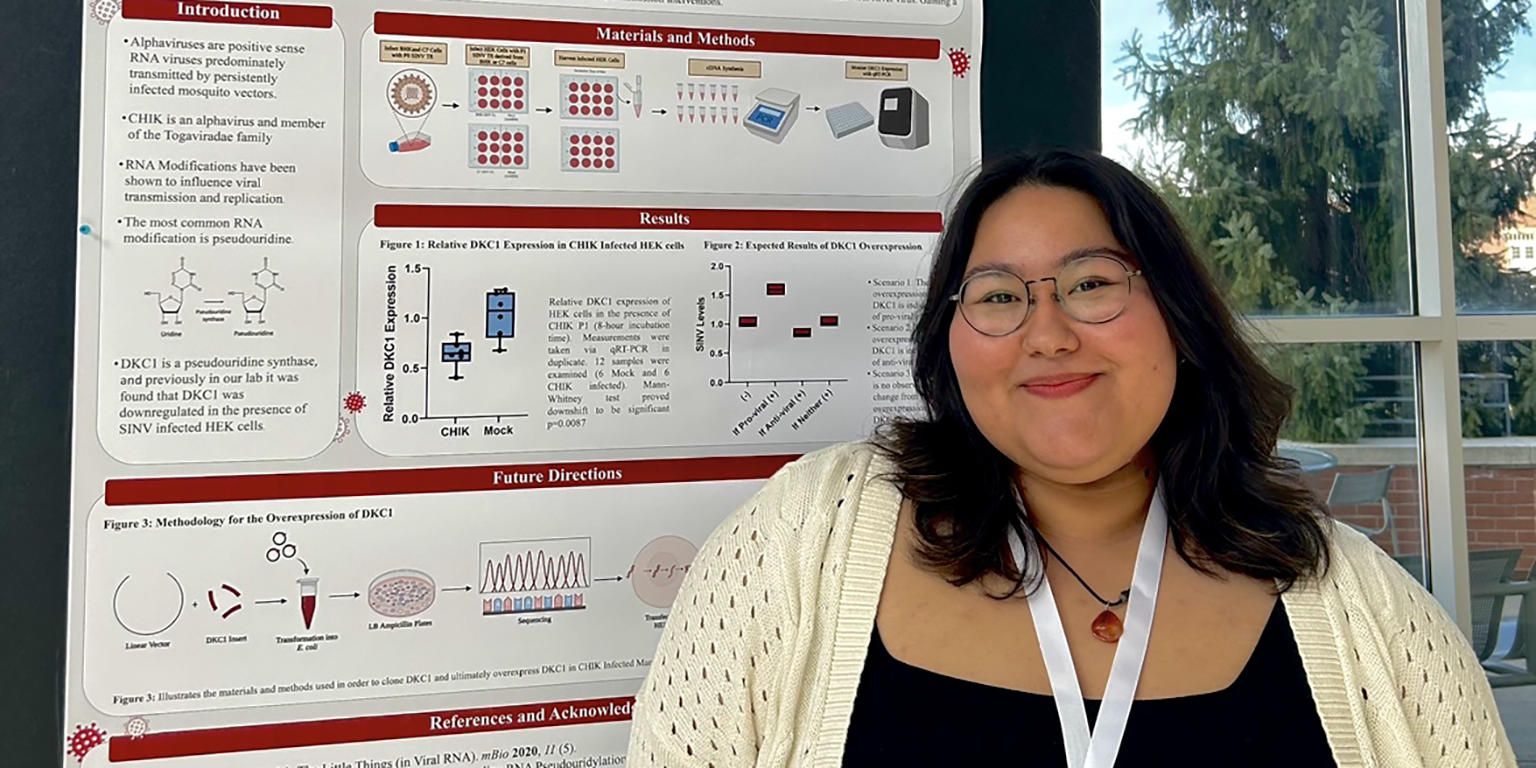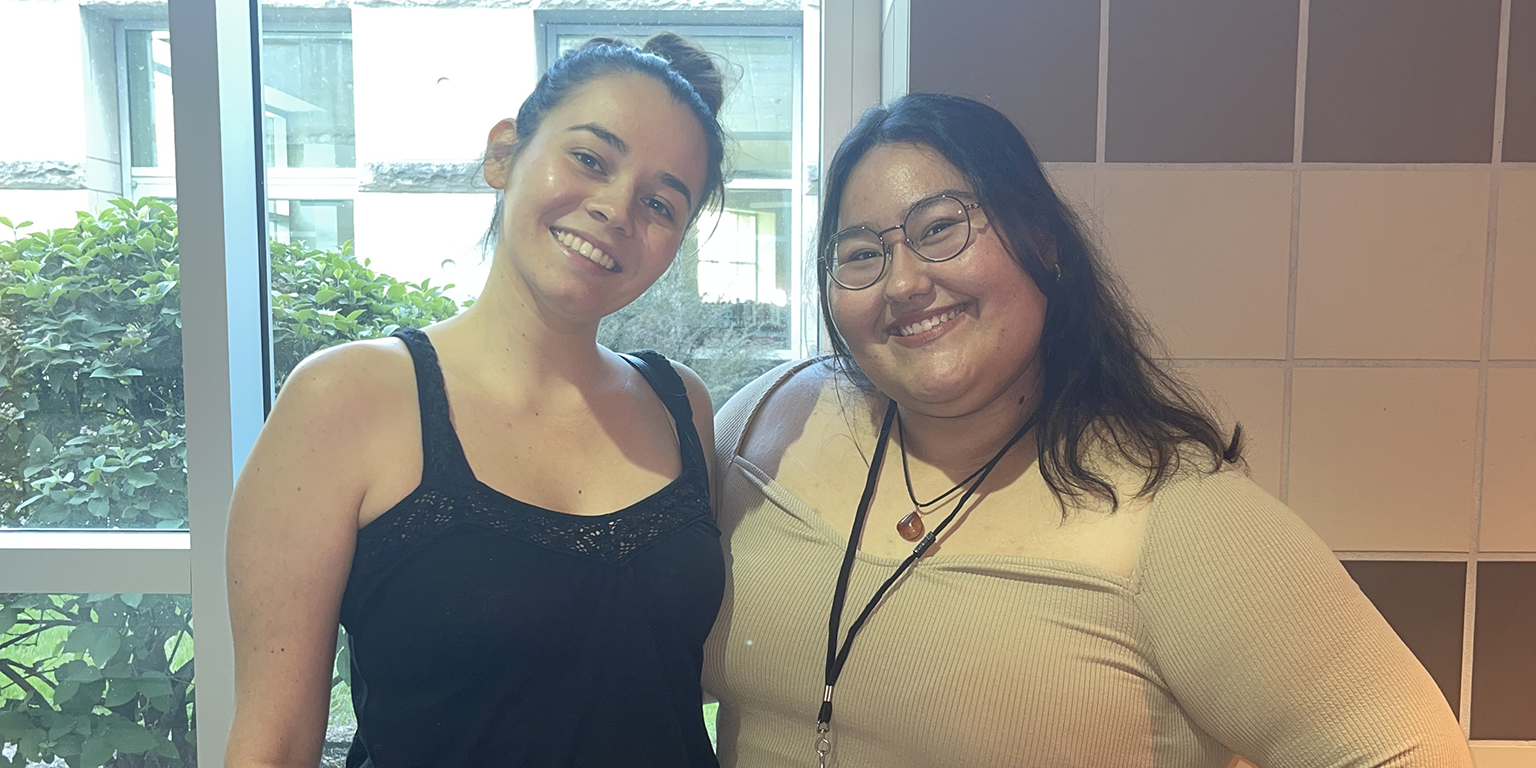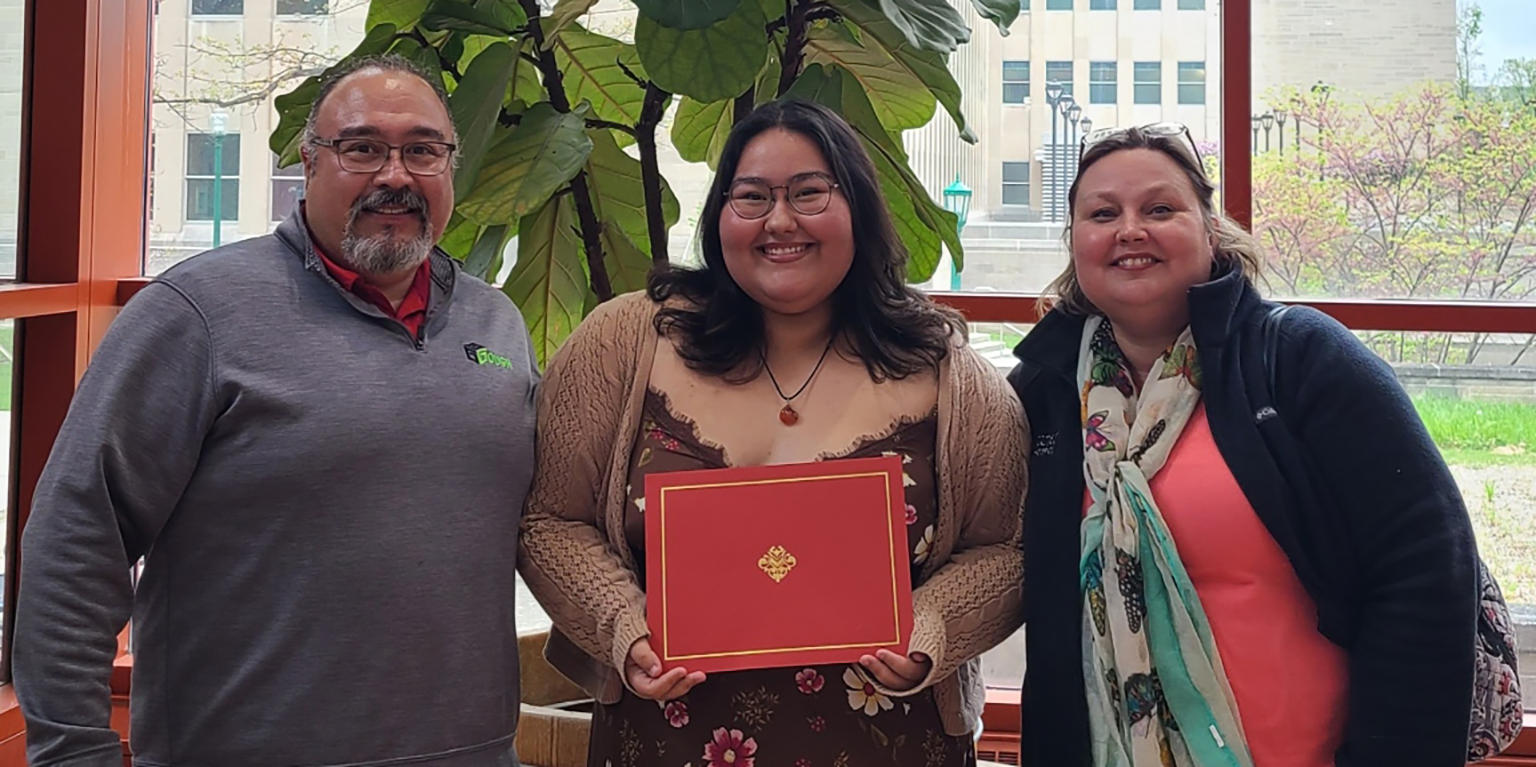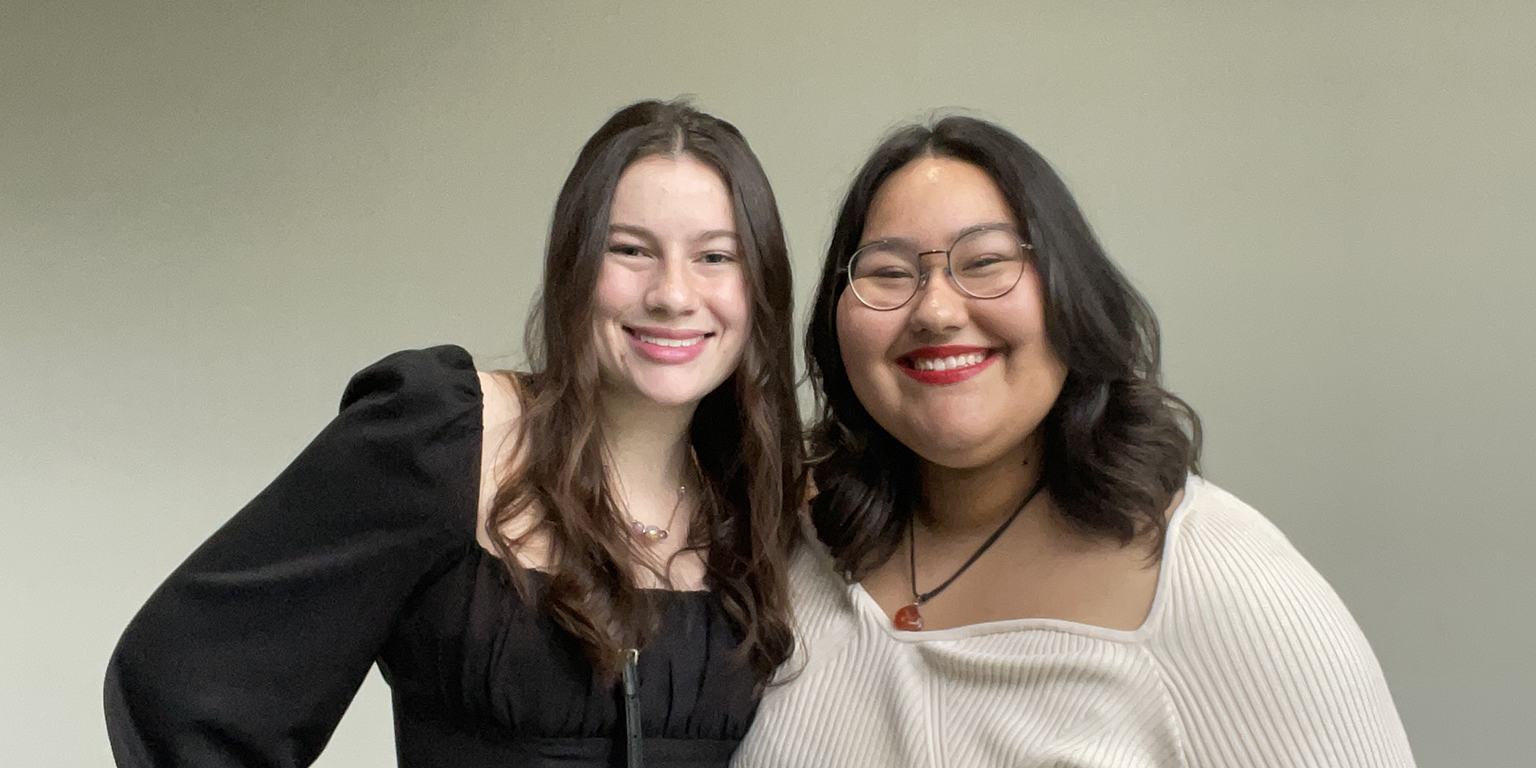A triple-major in microbiology, chemistry, and philosophy, Wren is currently interning with Eli Lilly and Company. This opportunity arose from her involvement with the IU Arts + Sciences Undergraduate Research Experience (ASURE) program. Wren reports, “A lot of my work is very much lab based, but also there is a large focus on networking and building connections with the scientists at Lilly!”
Wren joined IU from Crown Point High School in Indiana, where she got involved with Girls Empowered by Math and Science (GEMS), played in the symphony orchestra, managed the football team, and served as president of Code Red Medical Cub.
Q: What drew you to IU?
A: To be completely transparent, IU was not one of my top choices. I wanted to start with this sentiment because IU has completely changed my life. I truly cannot think of a better place for me to be pursuing my degree. IU has opened the door to so many opportunities both academically and socially, with such a broad Hoosier network that extends not only across the U.S. but across the world.
Even though my high school self didn’t think IU was the place for me, it definitely had amazing statistics that did compete with other top universities; for example, IU is an R1 research university, and because of that, it has a lot more opportunities for undergraduate research and research in general. In addition, its science degree programs really speak for themselves with the success of their students both in their undergraduate careers and following their undergraduate careers in whatever field they choose to pursue. While I can’t say I knew IU was the university of my dreams right off the bat, it has become that university that I call home and could not be prouder to represent.
Q: How do you think your time in the Women in STEM LLC has contributed to your path?
A: I think everyone faces imposter syndrome when stepping into something that is new or intimidating, but that imposter syndrome is elevated exponentially being a woman of color in STEM. For a long time, STEM has been a community that didn’t welcome space for POC, for women, and the list goes on with other marginalized groups, and this bitter aftertaste can still be felt even today.
Being the first person in my family to pursue a STEM degree, it was terrifying to really understand — and more so, to be confronted with — the idea that I would have to make space for myself in the STEM community, and even furthermore make space for other Latinas who come after me. It's such a confoundingly unique experience to pave the way for an entire community of people, and yet it's something that most people from marginalized backgrounds know to be as familiar as brushing your teeth.
This all relates to the WSTEM LCC because I found such a comfort in such an uncomfortable time through these other women in STEM, who were able to really empathize with these struggles and this intense pressure with the intersectionality of different identities existing in STEM and making space for them. I don’t think I could have ever been as successful as I thankfully have been without the support system this community has given me, both with its other members as well as leaders like Melissa Blunk and Alison Sinadinos.
Q: What were some of your favorite parts of your STEM Summer Research experience?
A: Aside from really starting to work toward my overarching research project in the Hardy Lab, I was given the opportunity to meet weekly with an amazing doctoral student here at IU, Jessica McClain. Jessica was there to talk to summer undergraduate students about intersectionality in STEM, creating space for marginalized groups in STEM, and overall hard-hitting topics that affected a lot of the summer research undergraduates, as a majority of us came from marginalized backgrounds. This was the first real conversation I had at IU that was working toward merging this gap between the identities of marginalized scientists and their work and STEM community.
I am so thankful to have been able to be present for these conversations and learn so much about making opportunities for myself and paving the way for myself, because as one of my research mentors once told me, “No one here is going to exclude you, but no one will include either, and it is up to you to make sure you are included.” The STEM summer research experience was an amazing opportunity to grow not only as a scientist but grow into my identity as a Latina scientist and how these identities intersect.
Q: How would you describe your experience in the ASURE program?
A: If I could hold a seminar for why incoming IU students should be in the ASURE program, I undoubtedly would. I can only speak from my experience being in the Genome Engineering section, but nonetheless, I can speak very highly about it.
For starters, Dr. Michael Manzella is the best professor and mentor I have had in my entire academic career, which is high praise considering how many amazing faculty we have at IU. Dr. Manzella opened my eyes to the world of research in an environment that was supportive and encouraging. If I weren’t a part of his lab through ASURE, I highly doubt I would be pursuing research. His lab and mentorship truly changed my life.
The ASURE program gives incoming students something that I think no other program at IU really can, and that is the freedom to really take charge of a research project and feel so engaged with the work. As a first-year student, you have the opportunity to really experience what it means to be a scientist and do research, which is undoubtedly one of the hardest things I have worked through, but also one of the most rewarding experiences I’ve ever had.
Research is hard. It is failure after failure after failure, and somehow still having the drive to come in and fail the next day, until one day you don’t fail (and somehow do all of this while not taking it personally lol). Nonetheless, even if you don’t want to pursue research, if you want to be involved in science generally, you need a taste of what research entails, and the ASURE program is a fantastic way to get students involved early on and in communities that truly do care about their success and well-being.
Q: At this point, what are some of your post-grad aspirations?
A: Post-graduation, I hope to attend graduate school and pursue a PhD in Microbiology. I would (as of right now lol) really be interested in working in a lab that utilizes viruses as a tool for molecular interactions or targeted gene therapy. For example, AAV9 is a really big area of research right now, and it is incredibly interesting to me, so I am hoping to secure another internship with Eli Lilly at their NYC branch, where this is more of a focal point of their research.


